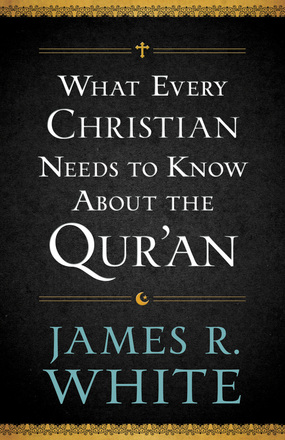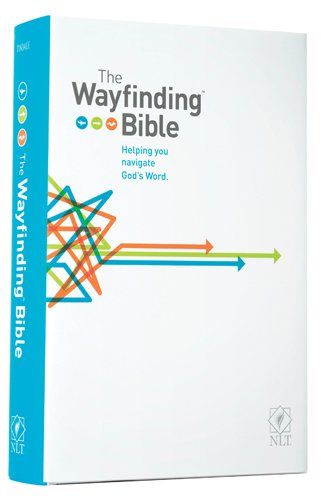The Israelites have just finished up surviving Balak’s attempts to hire in a curse or two from famed religious practitioner Balaam. See these comments on those stories: Curses, Foiled Again, Only His Words, and Take a Hint! Israel has been protected by God Almighty from a threat they do not even know exists—Balak’s attempt to manipulate the spiritual realm against them.
Having passed through this situation, one expects to find the Israelites either passing around Balak’s territory or conquering it. A look at the map shows that going around, or possibly through, is more likely. Balak’s territory of Moab is not really part of the Promised Land and the Israelites really just need to get around it to Canaan.
Except while they are camped out, someone has an idea. A horrid idea if you’re an Israelite, and a great idea if you’re a Moabite. The idea? Something like this: “Let’s try and get those Israelites to join us in a few wild parties, entice them with pseudo-religion, and hook up with us. Then they and us will have much more in common.”
Unfortunately, it works. The people of Israel “play the harlot” with the daughters of Moab (Numbers 25:1). This is not just about sex, though sexual immorality is the visible problem. The Israelites join the Moabites for some sex-focused worship of fertility gods, and defy the One True God in both morals and worship.
The end result? A curse comes on the people of Israel. They have just spent the last three chapters avoiding a curse from outside, and they curse themselves by their disobedience.
Before you drop back and shout “Stupid Israelites!” with me, I think we should examine ourselves. I am a firm believer that the narratives of the Old Testament are historically accurate, but I find more and more the “history” sections are almost parallel prophetic for the ages that have followed. Both people and nations have walked the path of Israel from bondage, delivered by God to freedom, and then straight back into disobedience.
We do it, too. God protects us and then we crash it. How?
Personally: it starts with salvation. We are saved from sin, hell, death, and all the lesser issues connected with those. We are saved into a right relationship with God. We are free from the curse of sin and the curse of Law-keeping to please God. Then we walk right back into some of the same problem habits we had before.
I am not talking here about our typical struggles with sin, the times we fight temptation and lose. I’m talking about how we will walk straightways into something we know is wrong—and just do it anyway. Then we wonder why our prayers seem empty or the Bible, the Word of the Living God, seems dull.
Churches: Guess what? Churches do this too. God establishes a church to witness to the power of the Gospel, and to share that Gospel. Then we bog it down. We bog it down with ‘must-do’ programs. We bog it down with ethnic stereotypes. We turn the bogs into curses by locking into bad ideas and making them the rule.
The guitar becomes a curse, the organ, the homogeneous unit principle, when they prevent us from seeing what God is doing in the lives of people. When they keep us from listening clearly to His Word.
Nations: Does this need explanation? How God can provide a nation deliverance from one set of problems, and then the freedom is taken for licensure, and then immorality destroys? How a nation might learn from godly people the value of education, the importance of distributing power, the need to keep laws slow in their passage, and then discard it?
It often happens that a nation or other group of people takes the idea that God made us all to mean that all of us are good—and therefore, all to be trusted unless they prove otherwise. The mistake is that we are all fallen, all warped by sin, and it takes the power of God to bring us to life. Apart from Christ, there is no good, for we as people have buried the imago Dei under layers of death. The curse follows our actions.
Corruption. It strikes up and down cultures, across the lines of history. Balak and his people trapped the Israelites with it. In fact, Balaam seems to have been involved in suggesting the idea! He knew that God would never curse the Israelites, but that God’s discipline falls on His people when they need it.
Let us avoid the same trap!
Today’s Nerd Note: Numbers 25:10-18 records the sundering of relations between Israel and Midian. Apparently, overall, the Midianites did not follow in Jethro’s footsteps. Instead, they partnered with the wicked Moabites and were part of the trap at Peor.
It appears that Phinehas is possibly overreacting here. Killing two people for sexual immorality? Yet he was defending the people at large from a bigger curse.
I would argue that execution for such things is not appropriate in this time frame. After all, there is rightly a separation between church and state. (There are wrong-headed applications of that concept aplenty, but it’s a good concept.)
However, the zeal of Phinehas is woefully absent from our modern Christian life. Modern religious leaders take to bed their adultery with this age and we say nothing. Even worse, they take to bed their sexual immoralities or defend those who are wickedly immoral, and we say nothing. Or we defend them from overzealous attacks.
Phinehas has none of that. He is zealous that YHWH not be defamed any longer. The wicked will fall. There will be no child-sacrifice like the Moabites. There will be no skirt-chasing. No compromise.
Should we not seek the same in religious leaders? No child sacrifice: neither literal nor by allowing their abuse. No skirt-chasing: neither in body or mind, in practice or theology. No compromise: right is right. Quit trying to shade it on the edges.
It remains remarkable that seminaries and their faculties will cite, encourage, and endorse people who cannot keep a moral line while harshly grading students who are a shade off-Turabian. It happened when I was a student, and it rather obviously continues to this day.


 That is, I suppose, a spoiler for Innovation’s Dirty Little Secret, but it’s not a plot book, so I’m unconcerned. The real purpose of Osborne’s work here is to present techniques and ideas for how to get over that fear. With 172 pages, he has time enough to address the issue but not enough time to beat it to death. (Having just read two 400+ page books on leadership, I’ve seen beaten to death on the subject.)
That is, I suppose, a spoiler for Innovation’s Dirty Little Secret, but it’s not a plot book, so I’m unconcerned. The real purpose of Osborne’s work here is to present techniques and ideas for how to get over that fear. With 172 pages, he has time enough to address the issue but not enough time to beat it to death. (Having just read two 400+ page books on leadership, I’ve seen beaten to death on the subject.)
 I am, unashamedly, a Christian. A right-wing, conservative lunatic, raving crazy Bible-is-always-right kind of Christian. Inherent in this is the assumptive belief that if we only had the Bible, we would be okay. I firmly support having more than the Bible for learning, but the Bible sits on the top of the stack.
I am, unashamedly, a Christian. A right-wing, conservative lunatic, raving crazy Bible-is-always-right kind of Christian. Inherent in this is the assumptive belief that if we only had the Bible, we would be okay. I firmly support having more than the Bible for learning, but the Bible sits on the top of the stack.

 One question I am asked, from time to time, is "How do I get started reading the Bible?" After all, the Bible is a collection of writings that span 1600 years of composition, various human authors, and a single Divine Author. Where do you start?
One question I am asked, from time to time, is "How do I get started reading the Bible?" After all, the Bible is a collection of writings that span 1600 years of composition, various human authors, and a single Divine Author. Where do you start?

